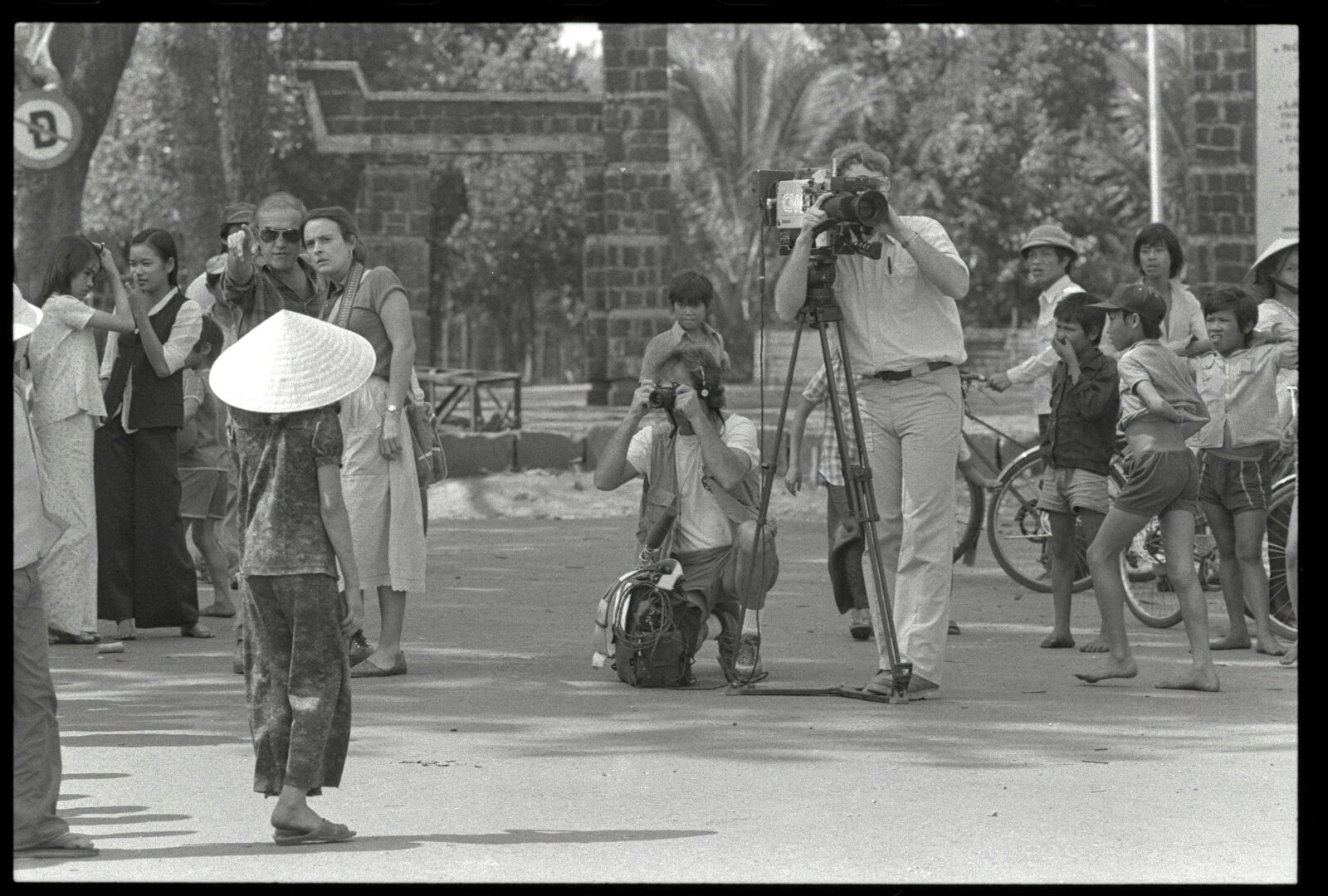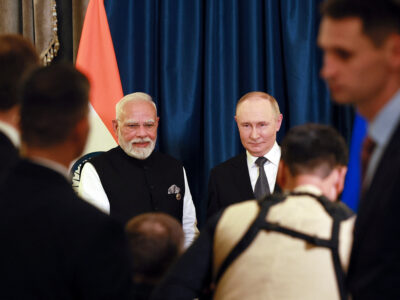War Journalism from Vietnam to Gaza – How War Coverage Impacts U.S. Foreign Policy
A half century after the fall of Saigon, a mythology persists that print and TV news reports brought the horrors of war into American living rooms, undermined public support for the war and the military, and contributed to U.S. capitulation. In the 1991 Gulf War, with these memories fresh in the minds of top military brass, the Pentagon sanitized war correspondence into a hyperreal, game-like experience through censorship and General Schwartzkopf’s highly choreographed briefings. The 2003 invasion of Iraq and the long war in Afghanistan employed new methods for controlling the war narrative, as correspondents were embedded with U.S. military units.
This Quincy panel explored the changing nature of war journalism since Vietnam – and what it means for the conduct or termination of wars fought or backed by the United States. It features Arnold “Skip” Isaacs, who covered the end of the Vietnam War for the Baltimore Sun, and Azmat Khan, professor of journalism at Columbia University and Pulitzer prize winning journalist for the New York Times who reported from Afghanistan and Iraq as a freelance journalist. Thom Shanker, director of George Washington University’s Project for Media & National Security and a 25 year national security correspondent for the New York Times, will moderate and participate in the conversation.
Program
Entities
Panelists

Arnold Isaacs
Arnold “Skip” Isaacs is a writer, educator, and the author of "Without Honor: Defeat in Vietnam and Cambodia" (reissued in 2022) and "Vietnam Shadows: The War, Its Ghosts, and Its Legacy". He was a reporter, foreign and national correspondent, and editor for the Baltimore Sun. During six years as the Sun's correspondent in Asia, he covered the closing years of the Vietnam war and traveled throughout Southeast and South Asia. After leaving daily journalism, he taught or trained journalists and journalism students in more than 20 countries in Eastern Europe, Africa, Asia, and the Middle East.

Azmat Khan
Azmat Khan is an investigative reporter for both the New York Times and Times Magazine and the Birch Assistant Professor at Columbia Journalism School, where she also leads the Li Center for Global Journalism. She is writing a book for Random House investigating America's air wars. Her multi-part series in the NYT, "The Civilian Casualty Files," was the culmination of more than five years of reporting. Her investigations for the Times Magazine, the PBS series FRONTLINE, and BuzzFeed have had widespread policy impact from Washington to Kabul and won more than a dozen awards, including a Pulitzer Prize in 2022.

Thom Shanker
Thom Shanker directs the Project for Media and National Security at George Washington University’s School of Media and Public Affairs. He spent 25 years at The New York Times, including 13 years covering the Department of Defense, national security policy, and combat operations in Iraq and Afghanistan. He co-authored the NYT best seller "Counterstrike: The Untold Story of America’s Secret Campaign Against Al Qaeda". He was previously foreign editor at The Chicago Tribune and a correspondent in Berlin and Moscow, covering the Yugoslav wars and the fall of the Soviet Union.



